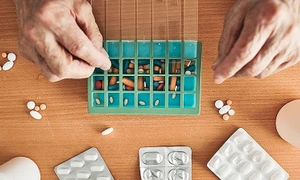
But instead of rejecting them outright, 22 law schools sent those aspiring lawyers — most of whom are racial minorities underrepresented on law campuses — into a new year-long program to prepare them for the rigors of legal education with a promise of admission and a scholarship if they finished. While law school pipeline programs are plentiful, the guarantee of a spot in the class is unique.
Of the 78 initial participants in LexPostBacc, as the program is called, 54 successfully completed it and all but three opted to start law school this fall, according to Chris Chapman, President of AccessLex Institute, the nonprofit group funding and administering LexPostBacc. That’s a completion rate of 69%.
Among the participating schools are Michigan State University College of Law; Florida International University College of Law; and Pepperdine University Caruso School of Law.
“We feel pretty good about it,” Chapman said of the program’s first year. “The goal is to take students who are admission adjacent and turn them into students who are admission eligible.”
The program is timely given the U.S. Supreme Court’s June decision banning race-conscious admissions at colleges and universities. Many in legal education are worried that the decision will hobble longstanding efforts to bring in more minority law students and diversify the legal profession. Chapman said he wants LexPostBacc, though small, to grow and inspire schools to launch their own similar programs.
LexPostBacc aims to broaden the pool of students enrolling in law school by making it less risky for law schools to admit candidates whose credentials — often Law School Admission Test Scores and undergraduate grade-point averages — place them at or near the bottom of the school’s admission cutoffs, Chapman said.
Participants must either be from an underrepresented racial group; be the first in their families to have graduated from college; or have received a need-based federal Pell Grant as an undergraduate. They must also have scored in the bottom 25 percent of national LSAT takers in order to qualify. Research shows that Black and Hispanic test takers on average score lower on the LSAT than their white counterparts — a trend experts attribute to inequitable schools and racial bias on standardized tests, among other factors.
Among the first cohort, 94% were people of color, Chapman said. The second cohort of 91 would-be lawyers is similarly diverse, he added. Participants spend 10 to 11 months in online classes — about 10 hours a week. If they complete the program, their referring law school guarantees admission as well as a 20% scholarship. AccessLex also provides each participant with a $3,000 stipend and a free bar review program.























